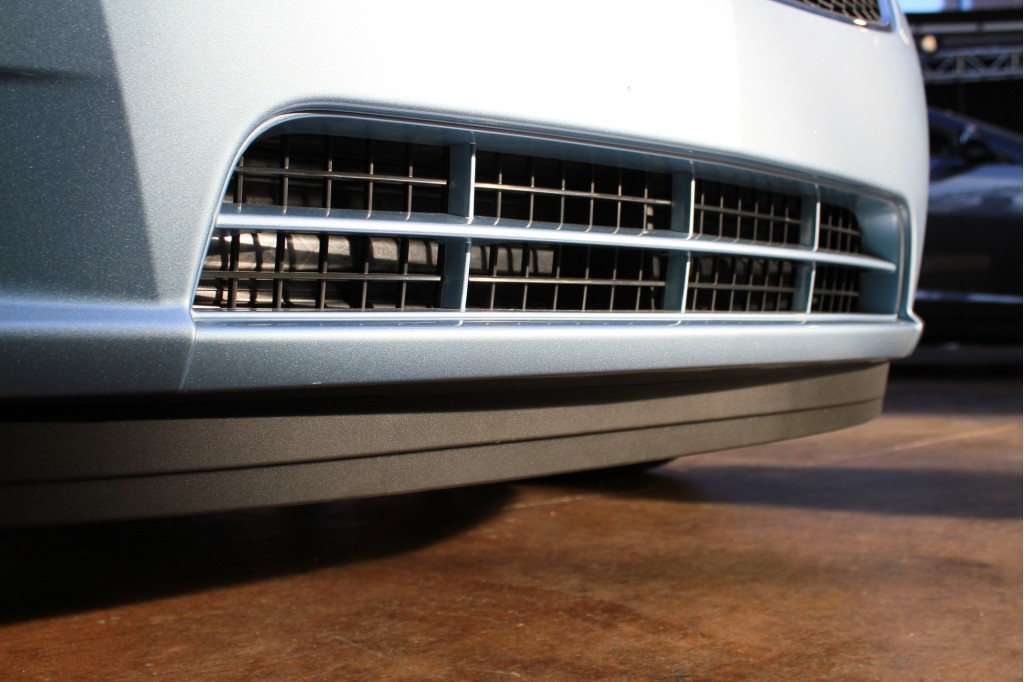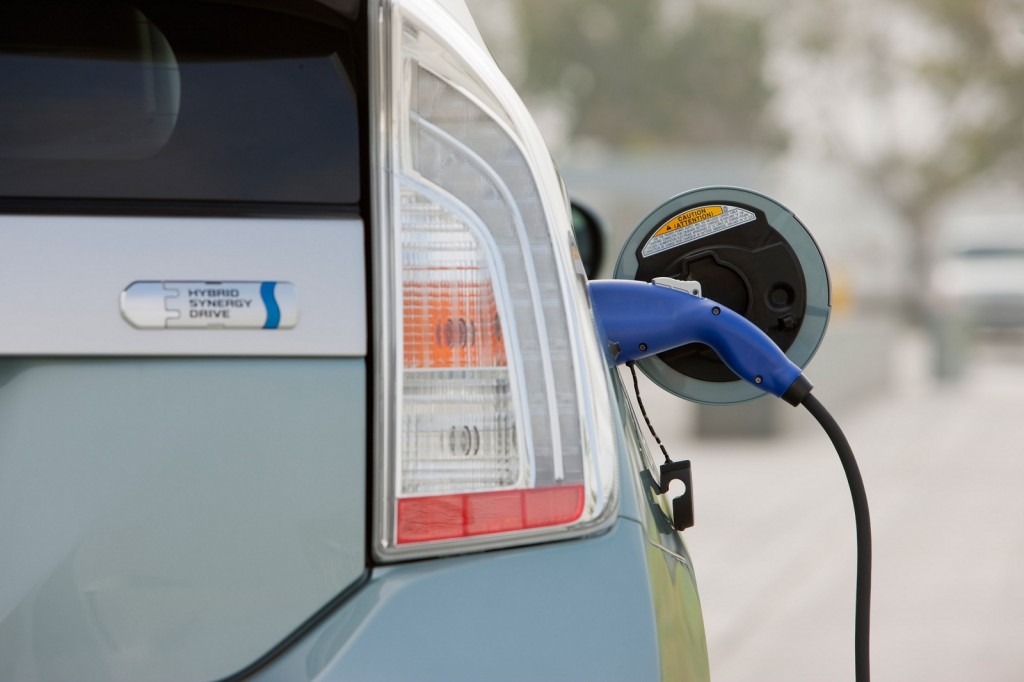Plug-in electric cars get a lot of press, perhaps more than their current sales might warrant.
It's clear to industry analysts that the proportion of plug-ins among new cars produced will grow, slowly, over the coming years and decades.
But don't count the gasoline engine out just yet.
The rate of electric cars migrating into the fleet--not to mention projections for diesel adoption into the U.S.--are the topic of much debate.
But for the next decade or more, the vast majority of the world's auto production will continue to have gasoline engines.
In Europe, roughly half of all new passenger cars are sold with diesel engines--but it's the only major market in the world where that's the case.
Natural gas may represent 1 or 2 percent of total production as well, but heavily concentrated in a few countries--of which India is by far the most populous.
Hybrids + electrics: 15 percent or less in 2025?
Estimates of plug-in share range from 1 percent to 3 percent of a total global production of perhaps 100 million vehicles by 2020.
Even adding in hybrids, electrified vehicles of all sorts are likely to make up only 15 percent of global production by 2025, according to a recent survey of auto-industry executives.
U.S. auditing firm KPMG released its 14th annual survey of global auto executives last Friday, covering 200 C-level executives in automakers around the world. Of those, 22 were from North American companies.
U.S. executives were the most optimistic about electrified vehicles; almost half (45 percent) said hybrids and plug-ins together would make up more than 16 percent of sales by 2025.
Engines offer most opportunity
Of all respondents, 71 percent believe the optimization of combustion engines will offer more efficiency and reduction in carbon emissions than any electrification technology.
"Today's combustion engines can continue to offer consumers the fuel efficiency and performance they desire," summarized KPMG auto industry leader Gary Silberg, "and what's clear is that the internal combustion engine is not going anywhere anytime soon."
Cars 10 years hence will be lighter, more aerodynamic, use far smaller and vastly more efficient engines, and likely incorporate a variety of efficiency technologies: active grille shutters, fuel shutoff, start-stop systems, and more.

2011 Chevrolet Cruze Eco Quick Drive and Live Photos
Note the kicker, though: That 71-percent response applies only to cars of the next six to ten years.
That's a short time for an industry that renews each of its underlying vehicle architectures--costing perhaps $1 billion each--only every seven years.
Silberg adds that car companies "will also intensify investment in electric technology, fully appreciating what is at stake in a very competitive industry."
Placing different bets
Over the next five years, said survey respondents, hybrid systems will get more investment than plug-in electric cars.
Asked which alternative technology would get the biggest investment, 26 percent said their companies would prioritize plug-in hybrid systems; 17 percent say it's pure hybrids; 13 percent say range-extended electric cars like the Chevy Volt; a surprising 11 percent said hydrogen fuel-cell vehicles; and only 8 percent tapped battery electric vehicles.
In other words, "automakers are placing bets across the board, and large bets at that, especially hybrids," added Silberg. Natural-gas vehicles were not included on the survey.

2012 Toyota Prius Plug-In Hybrid - production model
Our own bet
In coverage of Nissan Leaf and Chevy Volt sales, the author of this piece noted that he placed his own bet on the future mix of vehicle technologies.
Electric-car advocate Peder Norby contends that by 2020, conventional gasoline-engined vehicles will be less than half of total U.S. sales.
He believes battery electrics, range-extended electric cars, plug-in hybrids, regular hybrids, diesels, and natural-gas vehicles together will exceed 50 percent of the U.S. market.
This author disagrees; there's a dinner riding on the outcome.
What do you think? Who'll win the bet? And are the auto-industry executives right that gasoline engines will predominate over the next 10 years?
Leave us your thoughts in the Comments below.
+++++++++++












